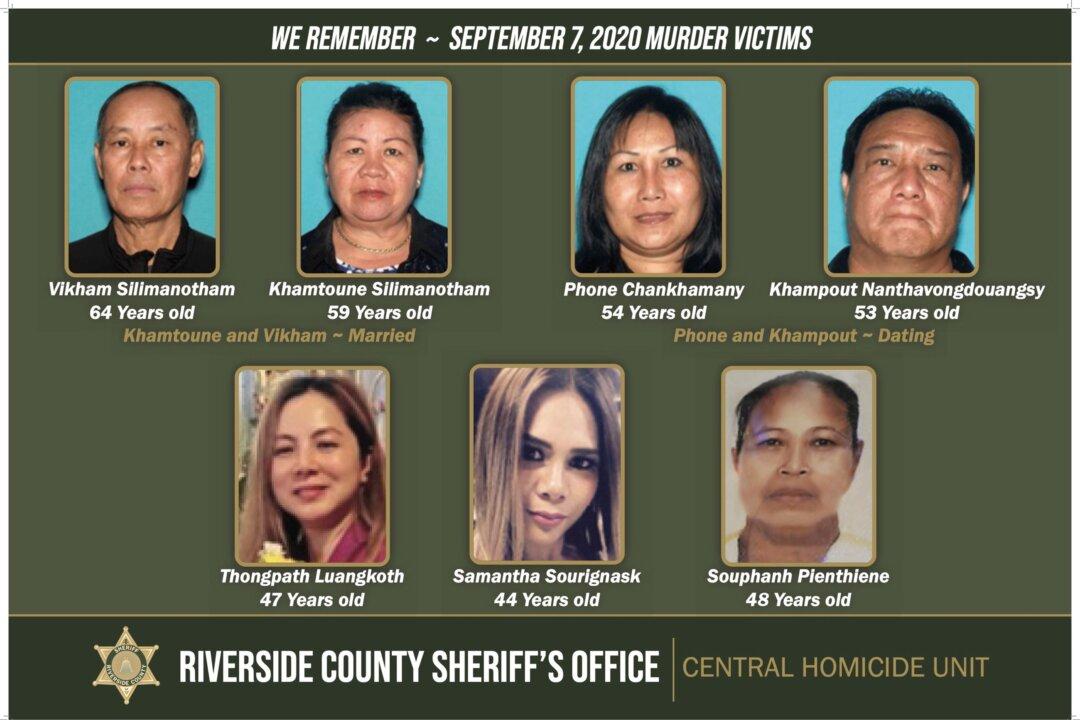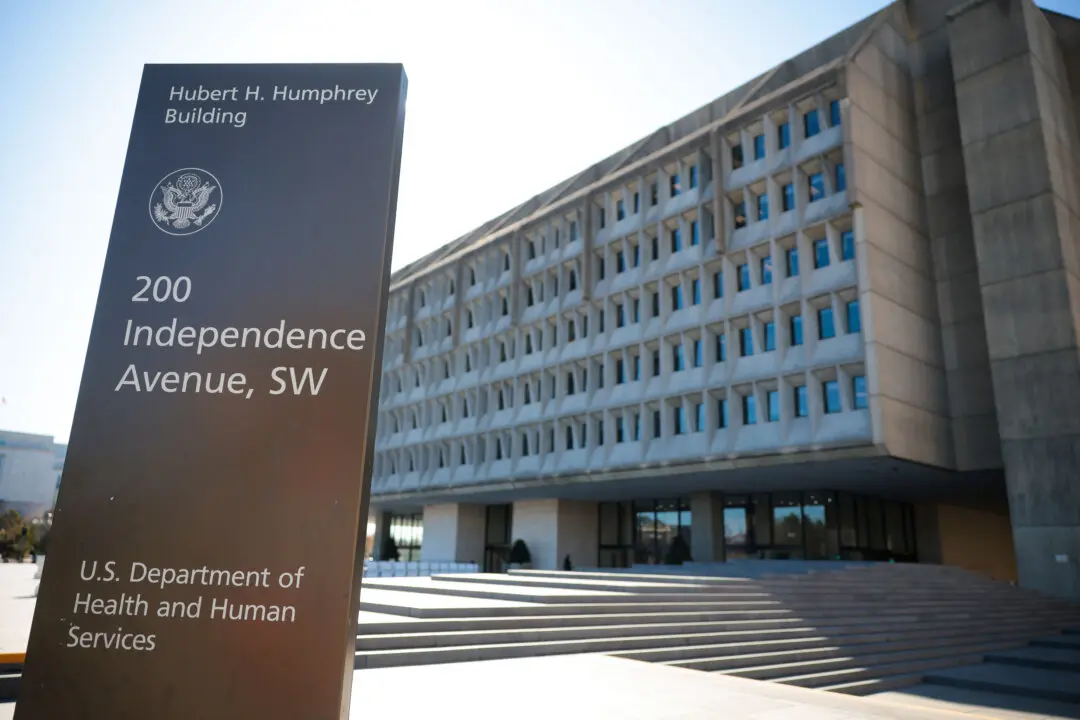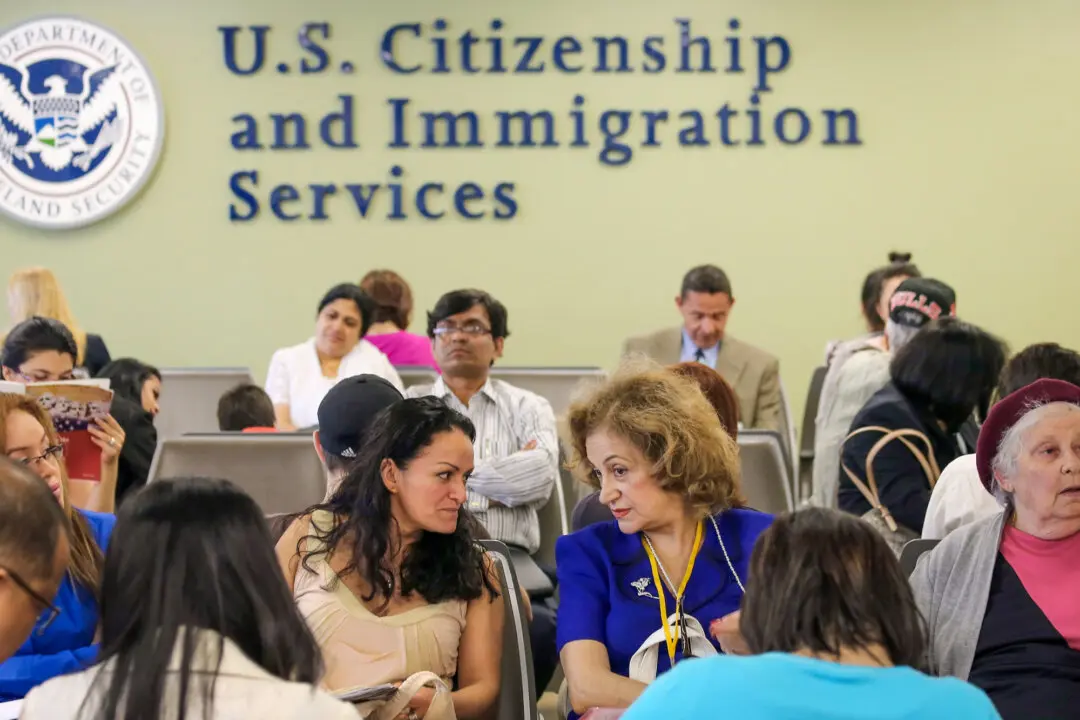Four years after a mass murder at a marijuana growing operation in a small, rural town in Southern California, the Riverside County Sheriff’s Office on Jan. 3 revealed that it has identified three suspects and a motive. The sheriff is asking the public for help in bringing the case to a close.
On Sept. 7, 2020, seven people, all of Laotian descent, were shot and killed in what authorities described as a home invasion robbery at an illicit marijuana operation in Aguanga. Authorities said they believe that the suspects were after cash on the premises, as more than 1,000 marijuana plants and several hundred pounds of processed marijuana remained at the site after the incident.





